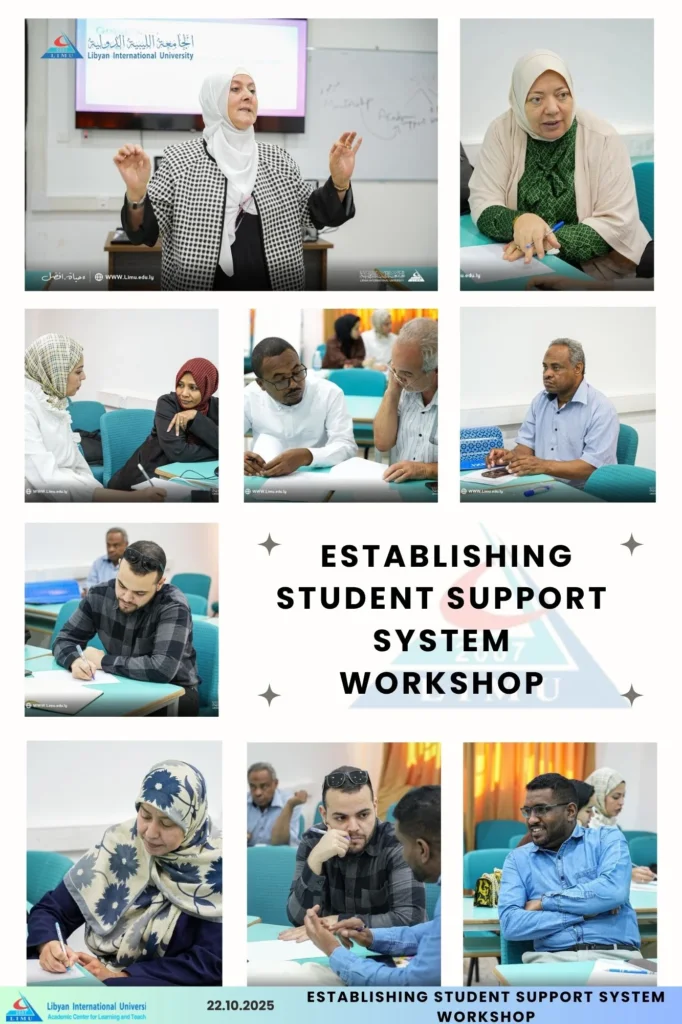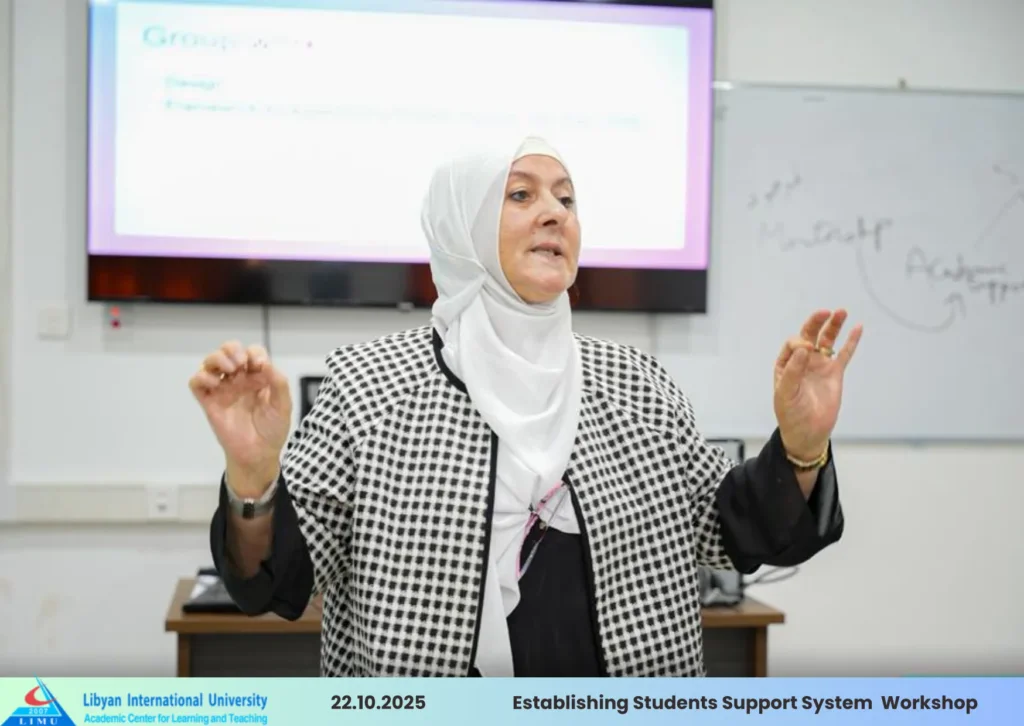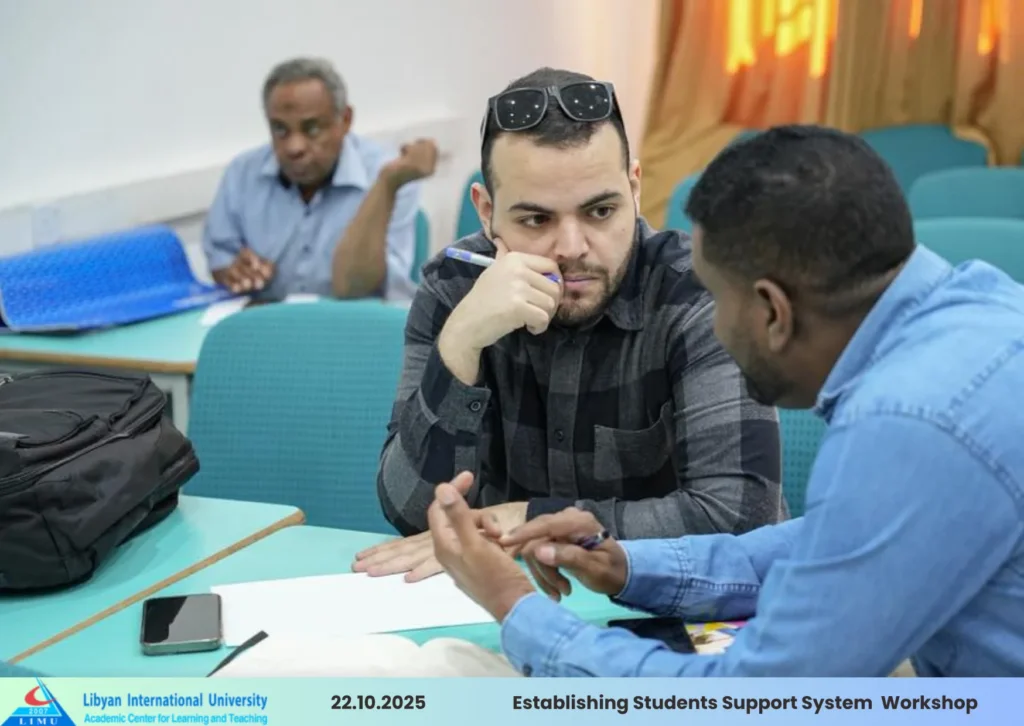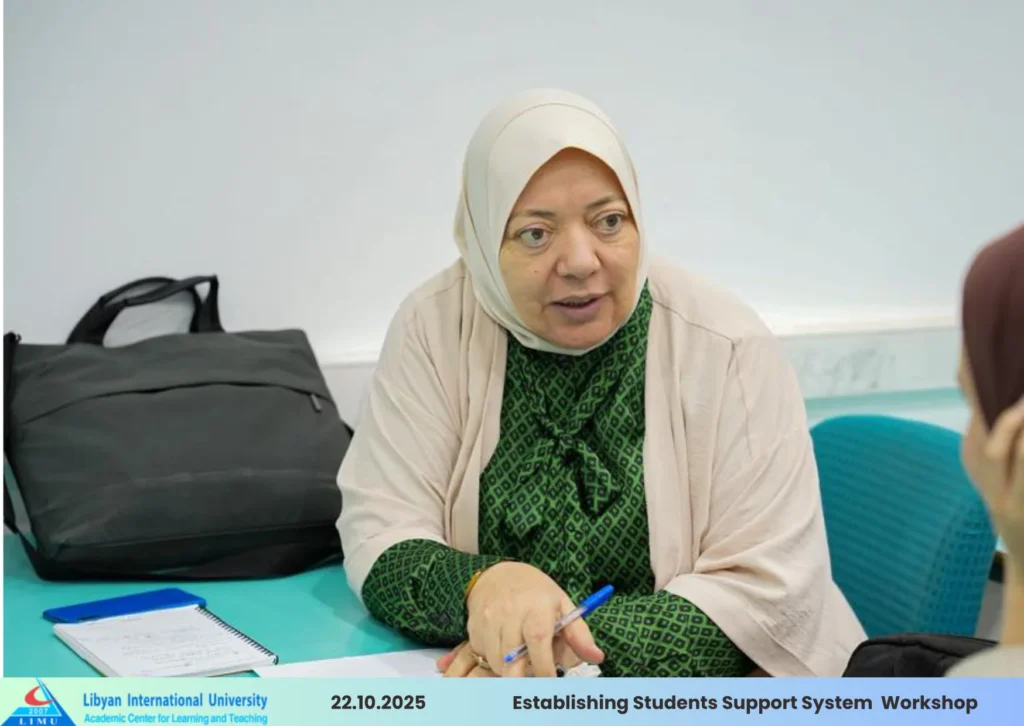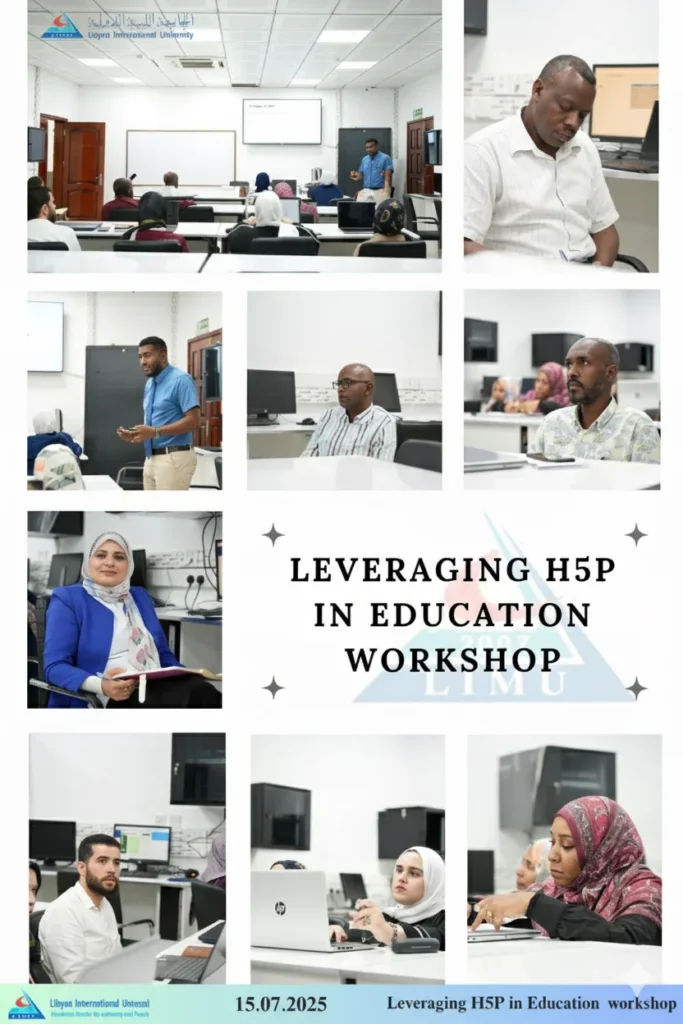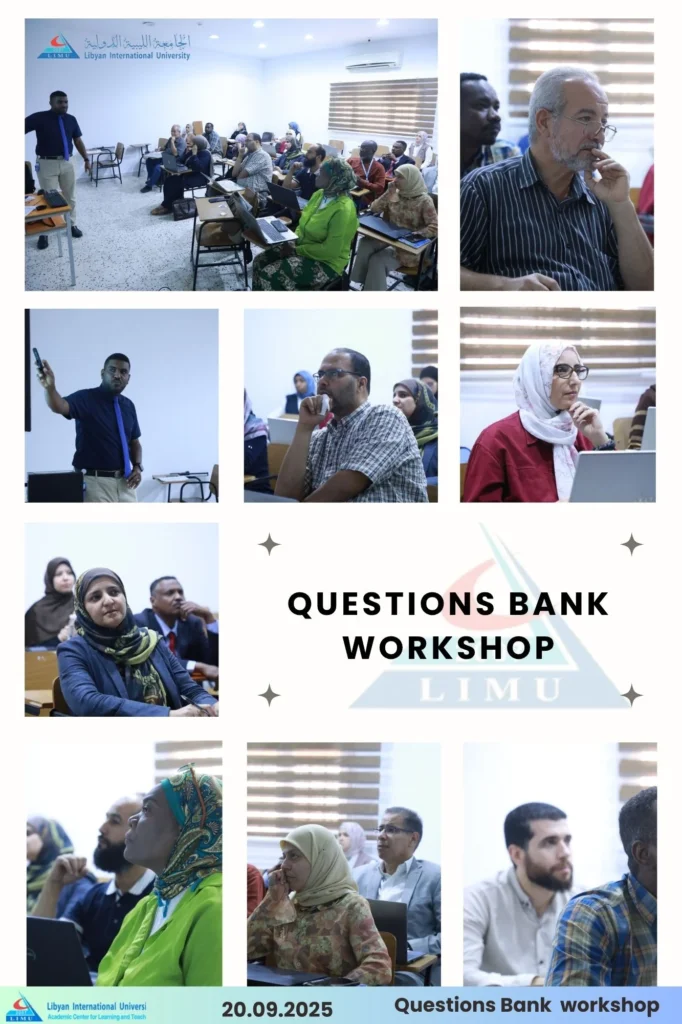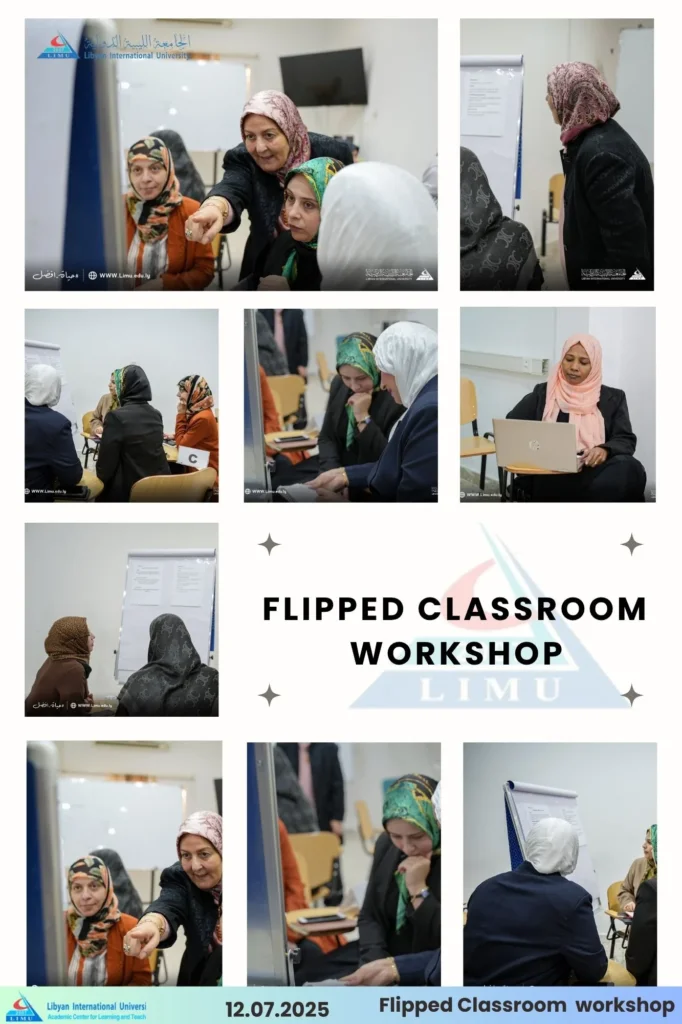The Academic Center for Learning and Teaching (ACLT) at the Libyan International University (LIMU) organized a workshop titled “Establishing a Comprehensive Student Support System” for faculty and staff members on October 22, 2025.
The workshop focused on a crucial aspect of higher education, creating and sustaining a robust support system that ensures the academic, social, and emotional success of students. Student support systems are essential for fostering engagement, resilience, and overall well-being, yet many institutions face challenges in implementing strategies that meet the diverse needs of their student population.
During the workshop, participants explored the key components of an effective student support system, including academic advising, career guidance, mental health support, and peer mentoring. They examined the roles of faculty and staff in promoting student success and discussed practical strategies to address academic, emotional, and social challenges faced by students.
The main objectives of the workshop included:
– Defining Student Support Systems: Participants learned to identify and explain the essential elements of a comprehensive support framework, emphasizing how each component contributes to student success.
– Roles of Faculty and Staff: The session highlighted the critical contributions of educators and administrative staff in creating a supportive and inclusive learning environment.
– Analyzing Student Needs: Attendees discussed the diverse academic, emotional, and social challenges students encounter and how support systems can address these effectively.
– Designing Support Strategies: Faculty and staff practiced developing intervention mechanisms for at-risk students and strategies to foster resilience, engagement, and achievement across diverse student populations.
– Applying Best Practices: The workshop introduced evidence-based models and frameworks for designing inclusive support services that enhance student well-being and academic performance.
– Practical Implementation Skills: Participants gained hands-on experience in planning, resourcing, and sustaining student support programs while aligning them with institutional goals.
– Assessing Effectiveness: The session emphasized the importance of evaluating existing programs through key performance indicators, such as retention rates, student satisfaction, and academic outcomes, and identifying areas for improvement.
– Fostering Collaboration: The workshop encouraged faculty, staff, and students to work together in building a cohesive academic community that promotes both personal and professional development.
By the end of the workshop, participants were equipped with the knowledge, skills, and practical tools to implement a holistic and effective student support system at LIMU. The session reinforced the university’s dedication to enhancing student success and fostering an inclusive, supportive, and thriving educational environment
